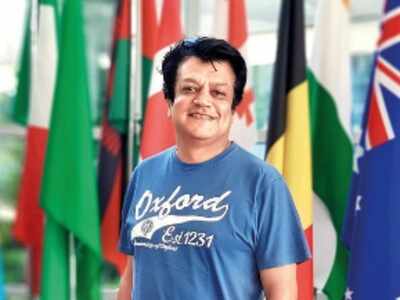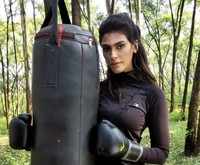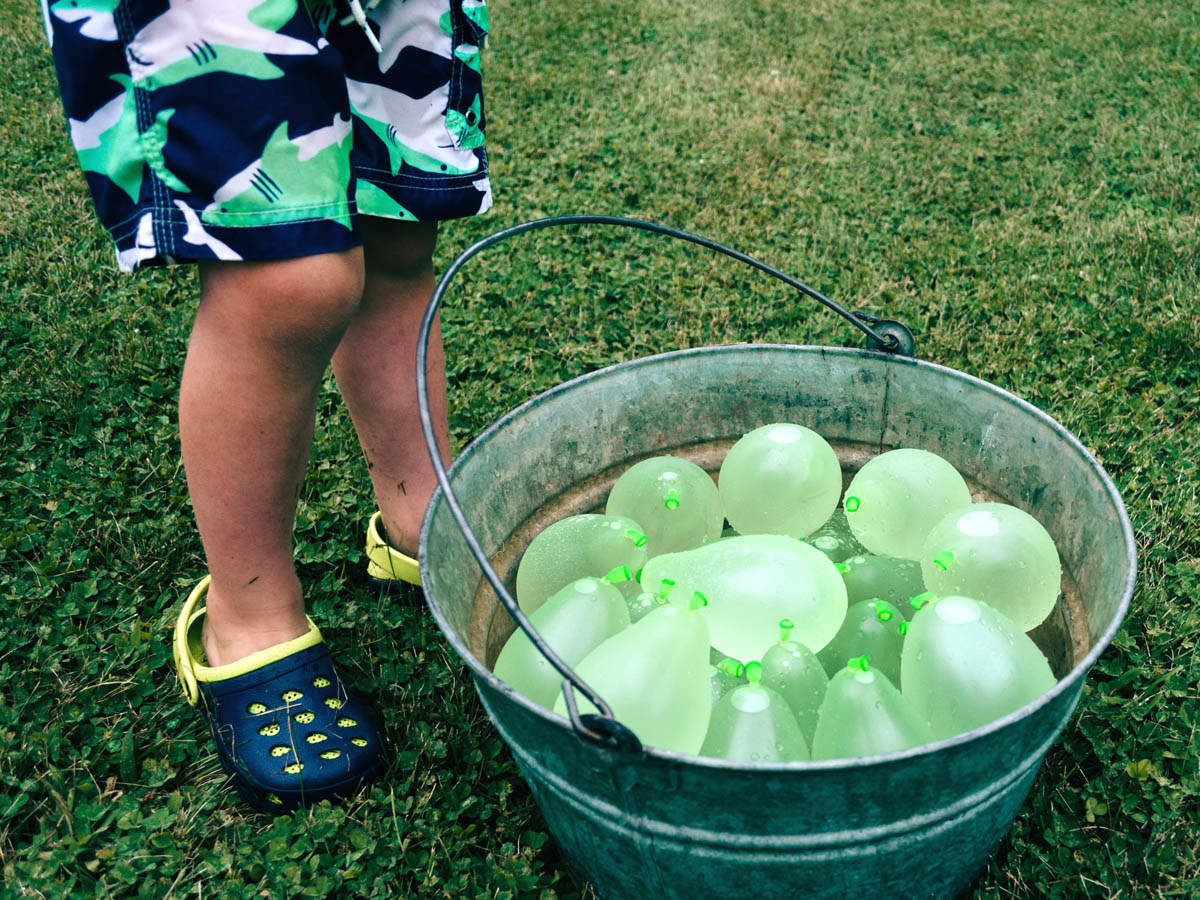
NEW DELHI: When 42-year-old Deepak Paliwal, a pharma consultant in the UK, signed up as a volunteer for the Covid-19 vaccine trial at Oxford University, he found little support among friends and family. “My family, including my wife, was concerned about my decision. I was told not to become a guinea pig. But this is something I had to do to help the world fight this pandemic, even if it meant risking my life,” said Paliwal.
So on April 16, Paliwal — who is the only-known Indian-origin volunteer to get the experimental jab — joined a team of 1,000-odd people to become part of the Phase 2 clinical trials of ChAdOx1 nCoV-19 vaccine.
Talking to TOI on Tuesday, a day after it emerged that the vaccine had produced a robust immune response in volunteers, Paliwal said he was proud of his contribution and so was his wife, Pearl D’Souza. “I did have concerns since the vaccine had only been tested in animals. People warned me that it might affect my fertility, others said the researchers might implant a chip that would track my movements,” said Paliwal, who hails from Jaipur and moved to the UK in 2010.
More on Covid-19
It wasn’t just his family cautioning him. Paliwal was also told by some researchers he was familiar with that there was a small chance that the antibodies triggered by the vaccine could make him more susceptible to Covid-19. “But I didn’t hesitate. I had made my decision. Besides, I wanted to represent the Asian community in a research that meant to save mankind,” said Paliwal, who completed his postgraduate from Manipal University.
On May 11, Paliwal received the vaccine and walked home after three hours. There were several guidelines he had to adhere to — attending study visits, not travelling by public transport to the centre and allowing investigators to study and monitor behaviours. Since then, Paliwal has had several follow-up visits and will remain under observation for a year.
Among other fears were also that the vaccine that Oxford is testing has been made from a virus ChAdOx1 which is a weakened version of a common cold virus (adenovirus) from chimpanzees and has been genetically changed so that it is impossible for it to grow in humans.
“But that it was possible that vaccine could have the opposite effect to the effect intended and there was also a possibility that the vaccine worked successfully,— some researchers had told me. I am today glad I listened to my heart and results are successfull now that vaccine has entered third phase of the trial in the UK” said Paliwal.
So on April 16, Paliwal — who is the only-known Indian-origin volunteer to get the experimental jab — joined a team of 1,000-odd people to become part of the Phase 2 clinical trials of ChAdOx1 nCoV-19 vaccine.
Talking to TOI on Tuesday, a day after it emerged that the vaccine had produced a robust immune response in volunteers, Paliwal said he was proud of his contribution and so was his wife, Pearl D’Souza. “I did have concerns since the vaccine had only been tested in animals. People warned me that it might affect my fertility, others said the researchers might implant a chip that would track my movements,” said Paliwal, who hails from Jaipur and moved to the UK in 2010.
More on Covid-19
It wasn’t just his family cautioning him. Paliwal was also told by some researchers he was familiar with that there was a small chance that the antibodies triggered by the vaccine could make him more susceptible to Covid-19. “But I didn’t hesitate. I had made my decision. Besides, I wanted to represent the Asian community in a research that meant to save mankind,” said Paliwal, who completed his postgraduate from Manipal University.
On May 11, Paliwal received the vaccine and walked home after three hours. There were several guidelines he had to adhere to — attending study visits, not travelling by public transport to the centre and allowing investigators to study and monitor behaviours. Since then, Paliwal has had several follow-up visits and will remain under observation for a year.
Among other fears were also that the vaccine that Oxford is testing has been made from a virus ChAdOx1 which is a weakened version of a common cold virus (adenovirus) from chimpanzees and has been genetically changed so that it is impossible for it to grow in humans.
“But that it was possible that vaccine could have the opposite effect to the effect intended and there was also a possibility that the vaccine worked successfully,— some researchers had told me. I am today glad I listened to my heart and results are successfull now that vaccine has entered third phase of the trial in the UK” said Paliwal.
Download
The Times of India News App for Latest World News

Coronavirus outbreak
Trending Topics
LATEST VIDEOS
More from TOI
Navbharat Times
Featured Today in Travel
Get the app









